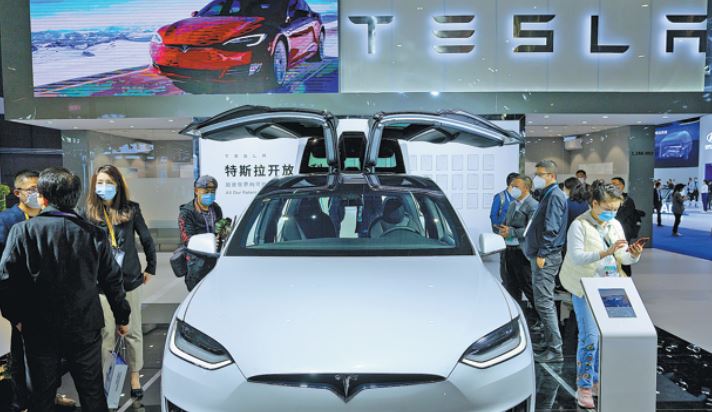Government inquiry into NEVs to make sure numbers add up

Chinese authorities have launched an investigation over new energy vehicle projects nationwide, deemed as a signal that the country is setting to solve the problem of overcapacity in the NEV industry.
The investigation was initiated by the National Development and Reform Commission, which requires local development and reform commissions across China to report carmakers' investment in NEVs by Nov 18, China Business Network reported on Wednesday.
The investigation covers the project status, construction progress and annual production status of registered new-build NEV plants since 2015.
Chinese property developer Evergrande and the financial conglomerate Baoneng, as newcomers to the NEV industry, are being given extra attention in the investigation.
Local authorities are required to report in detail any NEV and its components and parts projects invested in and planned to be constructed by Evergrande and Baoneng since 2017.
The report should cover information including land occupancy, construction content, project progress and investment situation.
Early this month, a development plan of the NEV industry (2021-35) was released by the State Council, China's Cabinet, aiming to curb the indiscriminate launch of NEV manufacturing projects and promote high-quality development of the NEV industry.

Data show that from 2015 to the first half of 2017, there were more than 200 NEV production projects launched in China. They involved a total investment of 1.03 trillion yuan ($156.5 billion) and a planned production capacity reaching 21.24 million vehicles.
The NEV projects were mostly under planning three years ago, which meant that overcapacity is likely to follow, insiders said.
Statistics from the China Association of Automobile Manufacturers show that the utilization rate of domestic passenger car production capacity was just 53.74 percent in 2019, while the figure was 66.55 percent in 2017.
Analysts said that specific to the NEV industry, the rate of capacity utilization may be much lower.
When it comes to sales volume, industrial competition results in only a few leading players having sizeable results.
Data show that the sales of NEV passenger vehicles in October in China totaled 133,000 units. More than half of this was contributed by the top four auto brands, including BYD and Tesla.
According to the China Passenger Car Association, as of October this year, a total of 10 auto companies had zero NEV sales or have not reported any sales data.
In contrast to the fierce market competition is that a raft local governments have hurried to embrace the industry and joined hands with NEV startups.
For instance, in August, Zhangye in Northwest China's Gansu province signed a cooperation framework agreement with an NEV automaker headquartered in Nantong, Jiangsu province, to establish a NEV production project in the city.
With a total investment of 10 billion yuan, the project has a planned annual production capacity of 500,000 NEVs.

